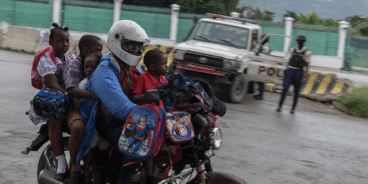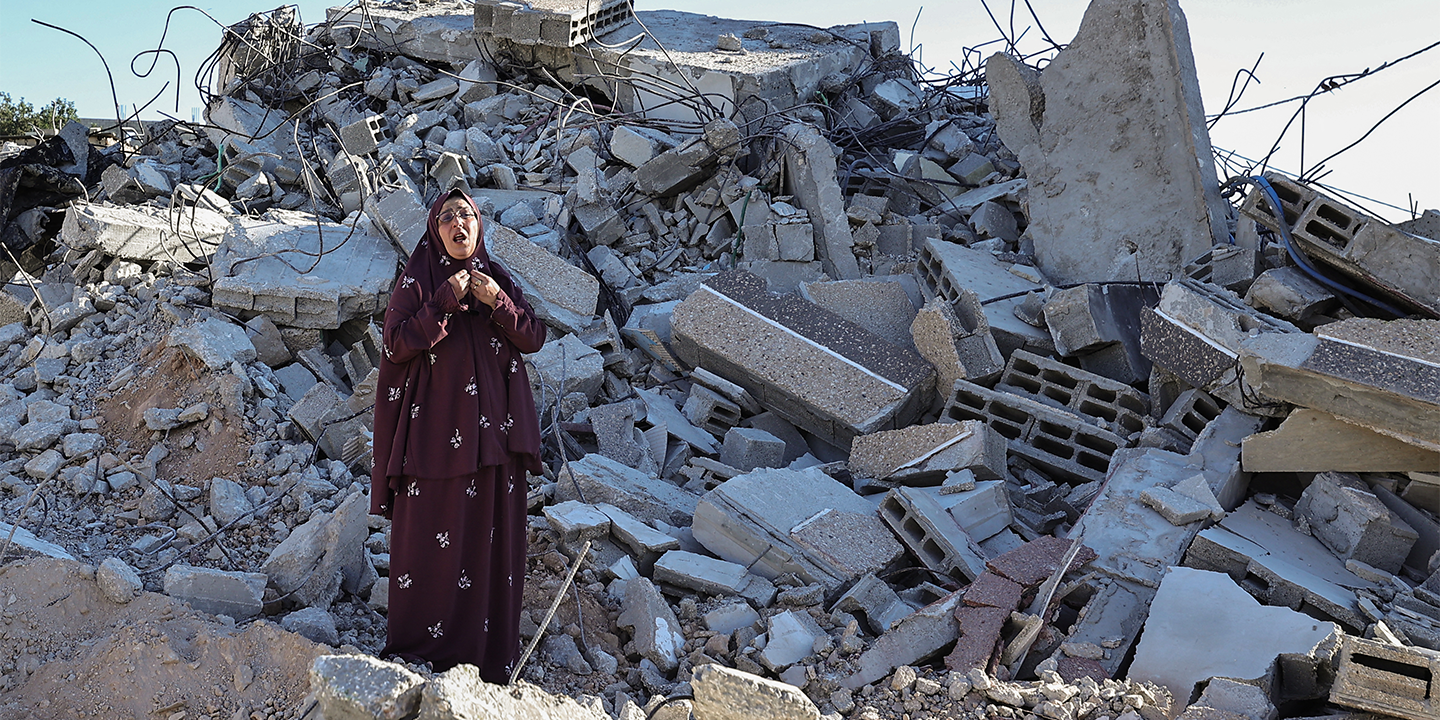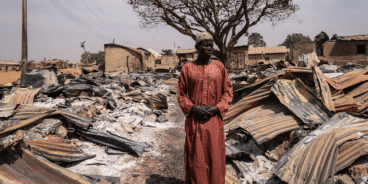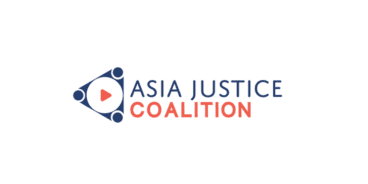

Atrocity Alert No. 403: Israel and the Occupied Palestinian Territory, Sudan and the UN Human Rights Council
Atrocity Alert is a weekly publication by the Global Centre for the Responsibility to Protect highlighting situations where populations are at risk of, or are enduring, mass atrocity crimes.
PALESTINIANS CONTINUE TO FACE ATTACKS AND ATROCITIES IN THE OCCUPIED WEST BANK
As crimes perpetrated against civilian populations in Gaza continue to mount, Palestinians in the Occupied West Bank are also at risk. According to reporting from the Office of the UN High Commissioner for Human Rights (OHCHR), Israeli settlers have escalated their violent attacks on Palestinian communities in the South Hebron Hills, Jordan Valley and East Jerusalem. Settlers have allegedly attacked women and children in their homes, set fire to and vandalized property, stolen livestock and destroyed essential infrastructure in attempts to force Palestinians to leave their lands. OHCHR said the settlers have been acting with the protection and support of Israeli security forces.
These settler attacks are part of a decades-long pattern of settler violence against Palestinians in the Occupied West Bank, committed with near-complete impunity and the acquiescence or collaboration of Israeli forces and authorities. According to OHCHR, these attacks have markedly increased in intensity since 7 October 2023, with dozens of such attacks happening across the Occupied West Bank on a weekly basis. According to documentation by the UN Office for the Coordination of Humanitarian Affairs (OCHA), since 7 October Israeli settlers have perpetrated at least 1,084 attacks against Palestinians, resulting in Palestinian fatalities and injuries, as well as damage to Palestinian property.
At the same time, the Israeli government has recently implemented a series of measures that could facilitate the illegal annexation of Palestinian land, including declarations of vast areas as “State land” for settlement development, retroactive “legalization” of illegal outposts, the establishment of thousands of new settlements and the transfer of administrative powers over the Occupied West Bank from the Israeli military authority to Israeli government offices. According to reporting by OCHA, between 7 October and 8 July Israeli authorities demolished, confiscated or forced the demolition of 1,117 Palestinian structures across the Occupied West Bank, resulting in the displacement of 2,524 people, including 1,113 children.
Israeli forces continue to conduct deadly operations across the Occupied West Bank, particularly in Jenin and Tulkarm cities and refugee camps, resulting in dozens of Palestinians killed and injured. Since 7 October at least 536 Palestinians have been killed by Israeli forces in the Occupied West Bank.
Under international law, Israel as the occupying power has an obligation to ensure the safety and protection of Palestinians as the occupied population. Israel must cease collective punishment of Palestinians and settlement expansions and ensure accountability for settler violence. An immediate ceasefire in Gaza must be urgently reached and all attacks against the civilian population must be halted. UN Security Council Resolution 2735 should be implemented without delay.
MASS CIVILIAN DISPLACEMENT AS RAPID SUPPORT FORCES EXPAND CONTROL IN SUDAN
Throughout June and early July, the Rapid Support Forces (RSF) have increasingly expanded their control over various regions in Sudan, leading to mass civilian displacement and reports of looting and intimidation. Violence between the RSF and the Sudanese Armed Forces (SAF) has escalated in Jebel Moya in Sennar State, and spread to the capital city of Sinja, as the RSF extends its influence eastwards. The intensified fighting has forced tens of thousands of people to flee towards Gedaref, Blue Nile, White Nile and Kassala states in eastern Sudan. Gedaref State already shelters over 40,000 refugees from Ethiopia. Clashes between the RSF and SAF have also been reported around strategic locations in West Kordofan State. The RSF’s advance has forced the remaining SAF troops to retreat, enabling the RSF to take control over the capital city, El Fula, and various military bases, as well as secure supply routes from South Sudan, where the RSF are allegedly receiving fuel, ammunition and weapons.
On 12 July the UN Security Council (UNSC) issued a press statement reiterating grave concern at the toll of the ongoing conflict on civilians, as well as the dire humanitarian situation and acute food insecurity. The UN Food and Agriculture Organization (FAO), the UN Children’s Fund and the UN World Food Programme have been warning about the rapidly worsening conditions in Sudan, especially for children. Alarming new food security projections as of 27 June show that more than 25 million people are acutely food insecure and 755,000 are enduring “catastrophic conditions,” with a risk of famine in 14 areas of the country. FAO Director-General Qu Dongyu emphasized, “We must act collectively, at scale, with unimpeded access, for the sake of millions of innocent lives hanging in the balance.”
Following a five-day visit to Port Sudan, the UN Designated Expert on Human Rights in Sudan, Radhouane Nouicer, also asserted that “the suffering of Sudanese people needs to end. It is high time for the Sudanese leadership to cease hostilities and engage in political talks – not tomorrow, not in a week, but now.”
The UNSC, African Union (AU), Intergovernmental Authority on Development and states with influence over the warring parties should continue to support efforts aimed at ending the fighting, while urgently prioritizing the protection of civilians and the prevention of any further escalation in civilian harm. The UN Secretary-General, together with regional and sub-regional organizations, as well as the UNSC, must urgently explore all options for civilian protection pursuant to UNSC Resolution 2736 of 13 June and the communique of the 1218th meeting of the AU Peace and Security Council on 21 June. Parties to the conflict must facilitate full, rapid, safe and unhindered humanitarian access to all civilians in need, and ensure the safety, security and freedom of movement of humanitarian personnel.
OUTCOMES OF THE 56TH SESSION OF THE UN HUMAN RIGHTS COUNCIL
On 12 July the UN Human Rights Council (HRC) concluded its 56th session in Geneva. The session, which started on 18 June, provided an important opportunity for UN member states to exchange and act upon atrocity situations around the world.
During the session, the HRC adopted a resolution renewing the mandate of the Special Rapporteur on Eritrea. In the resolution, the Council condemned ongoing arbitrary detentions, torture, enforced disappearances, extrajudicial executions, forced labor and sexual and gender-based violence. An HRC-mandated Commission of Inquiry (CoI) previously found that these abuses may amount to crimes against humanity. The resolution also expressed deep concern about the lack of accountability regarding the violations committed by Eritrean military forces in northern Ethiopia. The HRC also adopted a resolution regarding the situation of Rohingya Muslims and other minorities in Myanmar (Burma). While the resolution ensures ongoing public reporting and debates at the HRC on minorities in Myanmar, human rights organizations have expressed alarm about calls for the return of the Rohingya from Bangladesh to Myanmar, where war crimes and crimes against humanity continue to be perpetrated.
States also participated in Interactive Dialogues on Afghanistan, the Central African Republic, Ukraine and Venezuela. On 19 June the CoI on the Occupied Palestinian Territory, including East Jerusalem, and Israel, presented its report which warned that Israel has committed war crimes and crimes against humanity since 7 October 2023, and that the statements made by Israeli officials “amounted to incitement and may constitute other serious international crimes,” namely potential genocide.
The HRC also adopted the outcomes of China’s Universal Periodic Review, which took place in January 2024. Despite calls for action by the Office of the UN High Commissioner for Human Rights, Special Rapporteurs and Treaty Bodies, it remains challenging to address ongoing crimes against humanity in the Uyghur Region of China at the HRC.
Since its establishment in 2006, the HRC has ensured scrutiny and contributed to accountability for atrocity crimes, including through the establishment of investigative or reporting mandates for the Democratic People’s Republic of Korea, South Sudan, Syria and other emerging or protracted crises. Elisabeth Pramendorfer, Geneva Representative at the Global Centre for the Responsibility to Protect, said, “While this demonstrates that governments can uphold their responsibility to protect, the failure of cross-regional UN member states to abide by and defend legal obligations regardless of where atrocities are occurring – from Gaza to the Uyghur Region – severely jeopardizes the atrocity prevention architecture built over the past 75 years and leaves populations to face the devastating consequences. All UN member states must work toward reversing this widening gap between legal obligations and practice. It is not only a legal and moral responsibility but is central to safeguarding vulnerable populations wherever and whenever they are threatened.”
Related Content


Atrocity Alert No. 469: Nigeria, Israel and the Occupied Palestinian Territory and South Sudan
